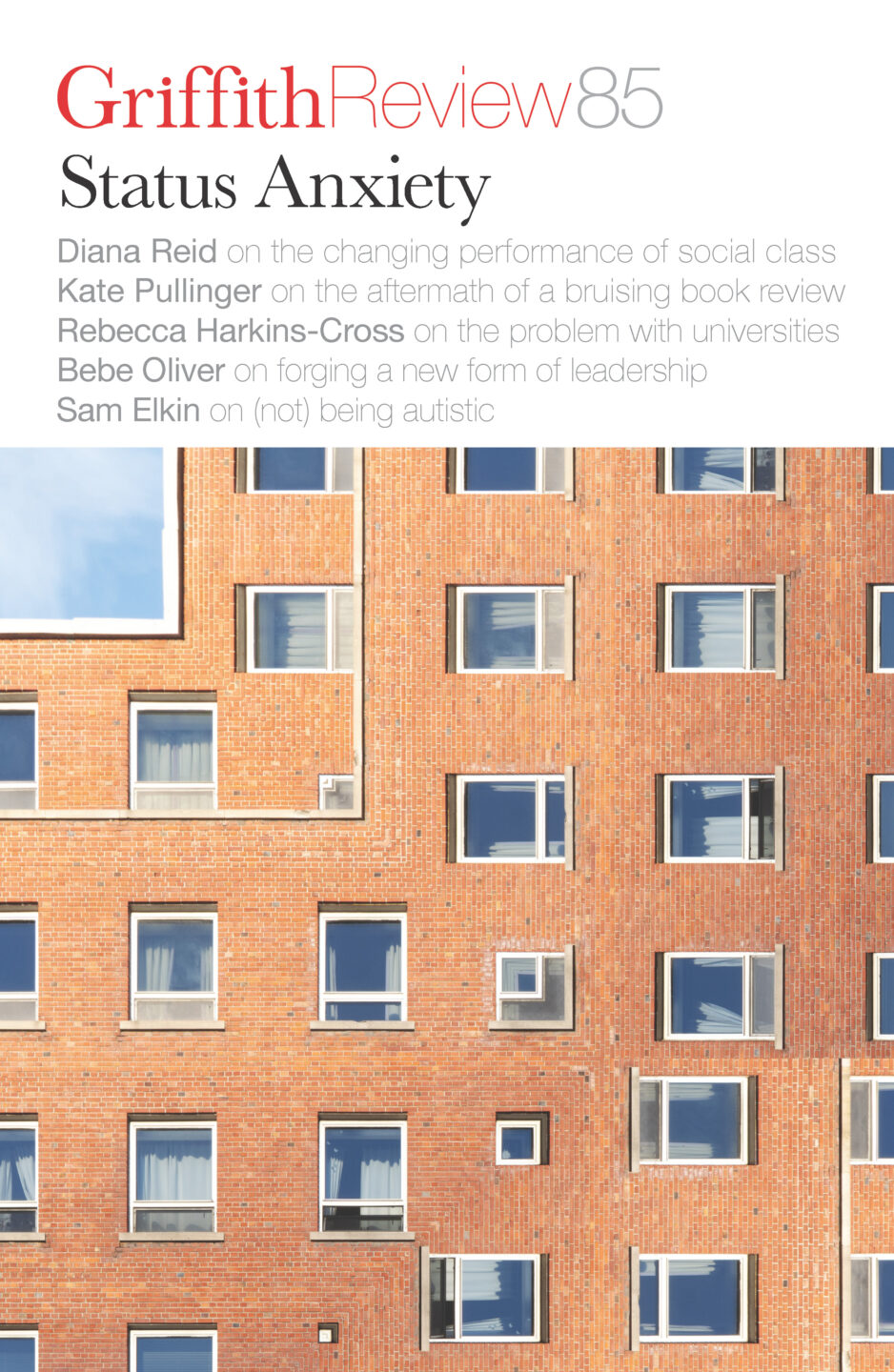Featured in

- Published 20240806
- ISBN: 978-1-922212-98-6
- Extent: 216pp
- Paperback, ePUB, PDF


Already a subscriber? Sign in here
If you are an educator or student wishing to access content for study purposes please contact us at griffithreview@griffith.edu.au
Share article
More from author

Trans as monster
GR OnlineA near future in the West in which access to gender-affirming surgery and cross-sex hormones is outlawed is no longer unimaginable. Those of us who have updated our sex markers on our passports have begun to wonder if they will be soon declared invalid with the stroke of a pen. It’s already happening in the US and the UK, once the global torch bearers of queer liberation. Why couldn’t it happen here too?
More from this edition

Conferral
Non-fictionBeneath my fantasy of a regular wage is the puerile hunch that if I stay in academia, I can regain some of the nervy possibility I held as an undergraduate student. It was at university that I first met people whose days were preoccupied with thinking, reading and writing, revelatory mostly because they were compensated for these activities with bourgeois trappings and validation. With hindsight, I can recognise that my straining so doggedly to become the kind of person who succeeded according to the university’s metrics mainly taught me what bell hooks says is the primary lesson of college – namely, ‘obedience to authority’.

High life
FictionWe’ve just finished one of the longest and hardest shifts of the year, and we are too tired to leave the building. It’s Christmas Eve, a 35-degree night, and we survived three dinner seatings while being two people down. We also all worked a double, and our staff meal was the butt ends of bread choked down with blood-temperature water while polishing cutlery. Every single person we served was tired, stressed, sick of spending money and not looking forward to seeing their in-laws. They also all wanted dressing on the side, no garlic and everything gluten free, but to also have multiple serves of the pasta of the day.

Joker in the pack
IntroductionStatus itself is a little like a riddle: a code to be cracked, a hand in which you can’t see all the cards. Unless you’re Batman, however, the stakes for solving riddles tend to be comfortingly low, whereas the pressures of deciphering status can occupy a far more consequential role in our lives (it’s all fun and games until somebody loses their cultural capital).